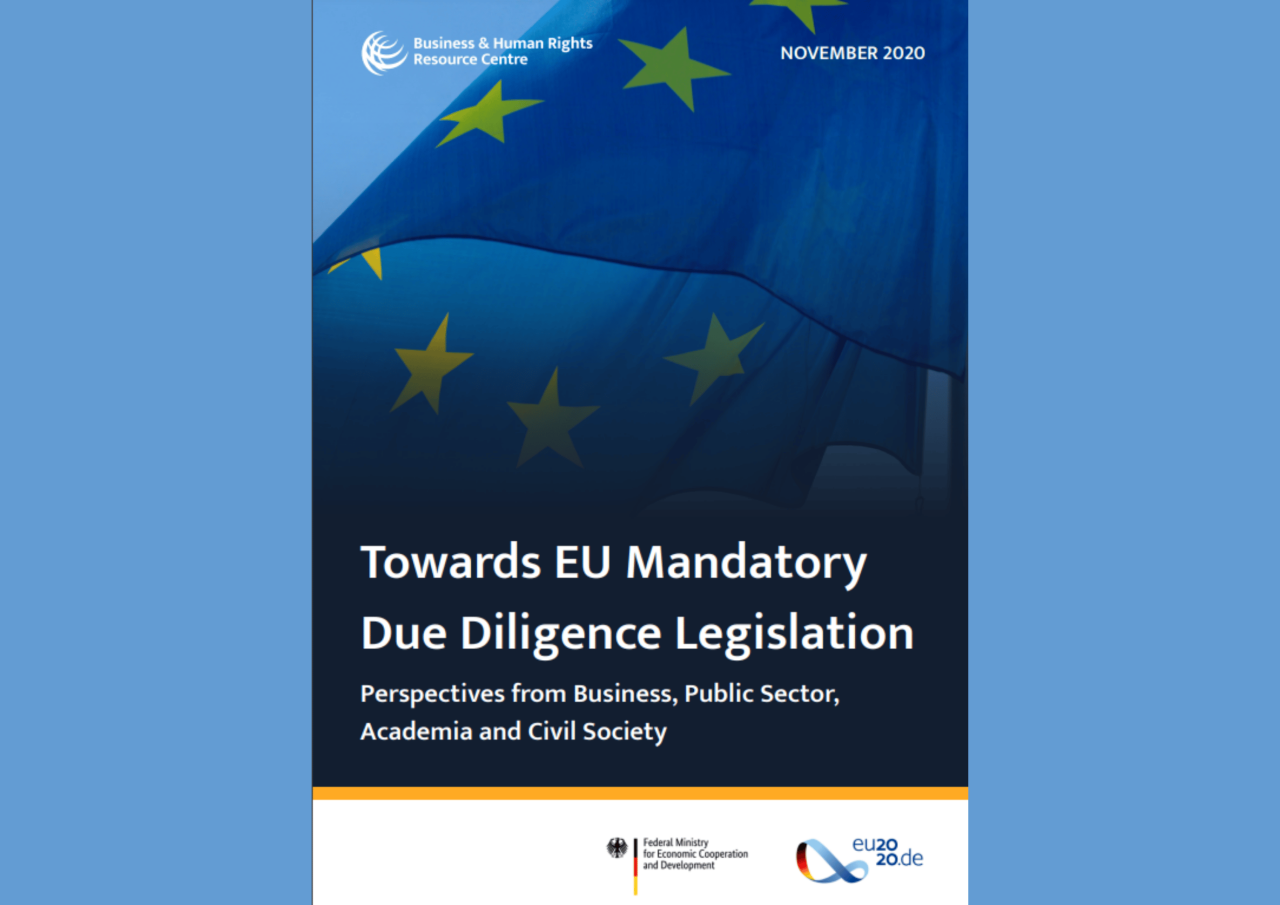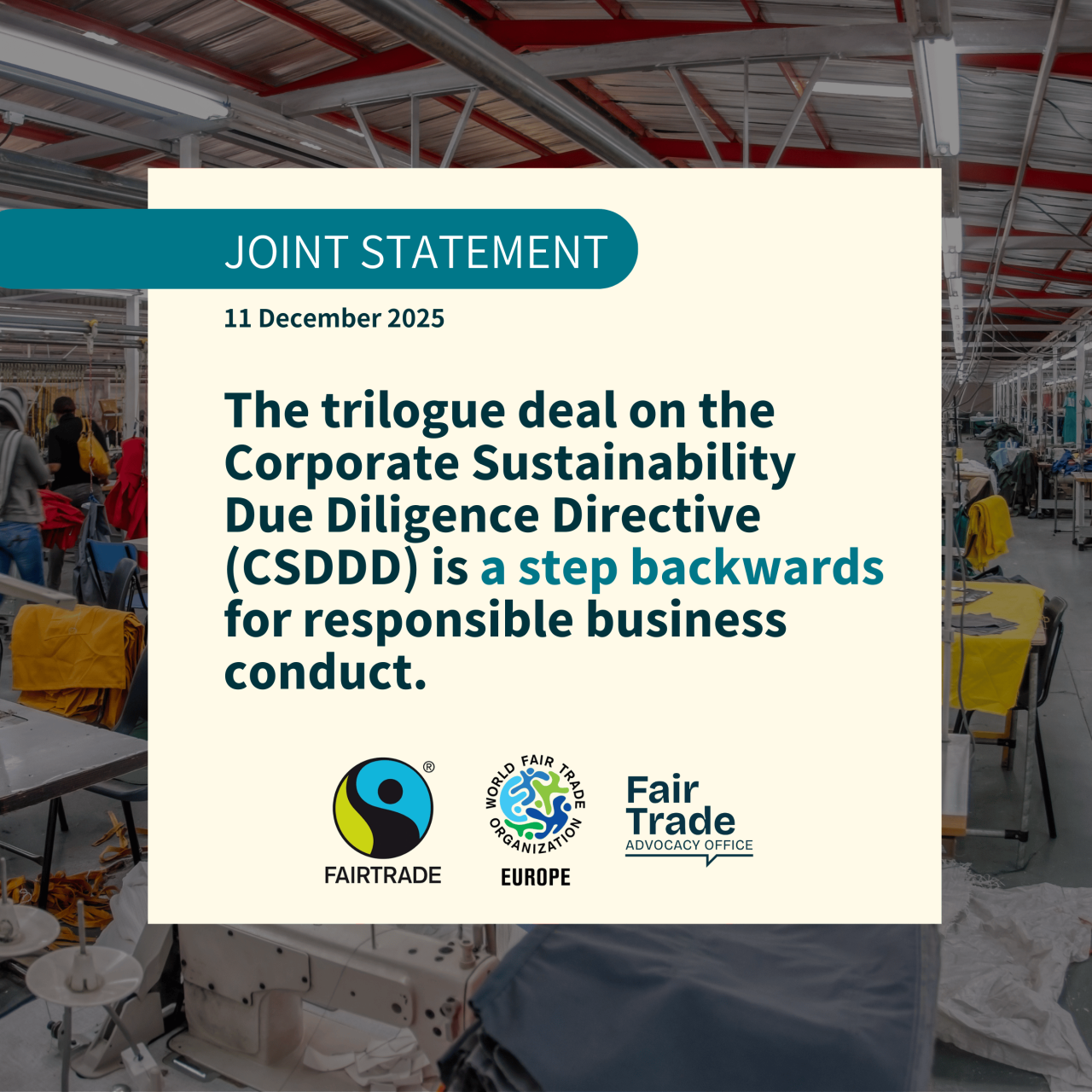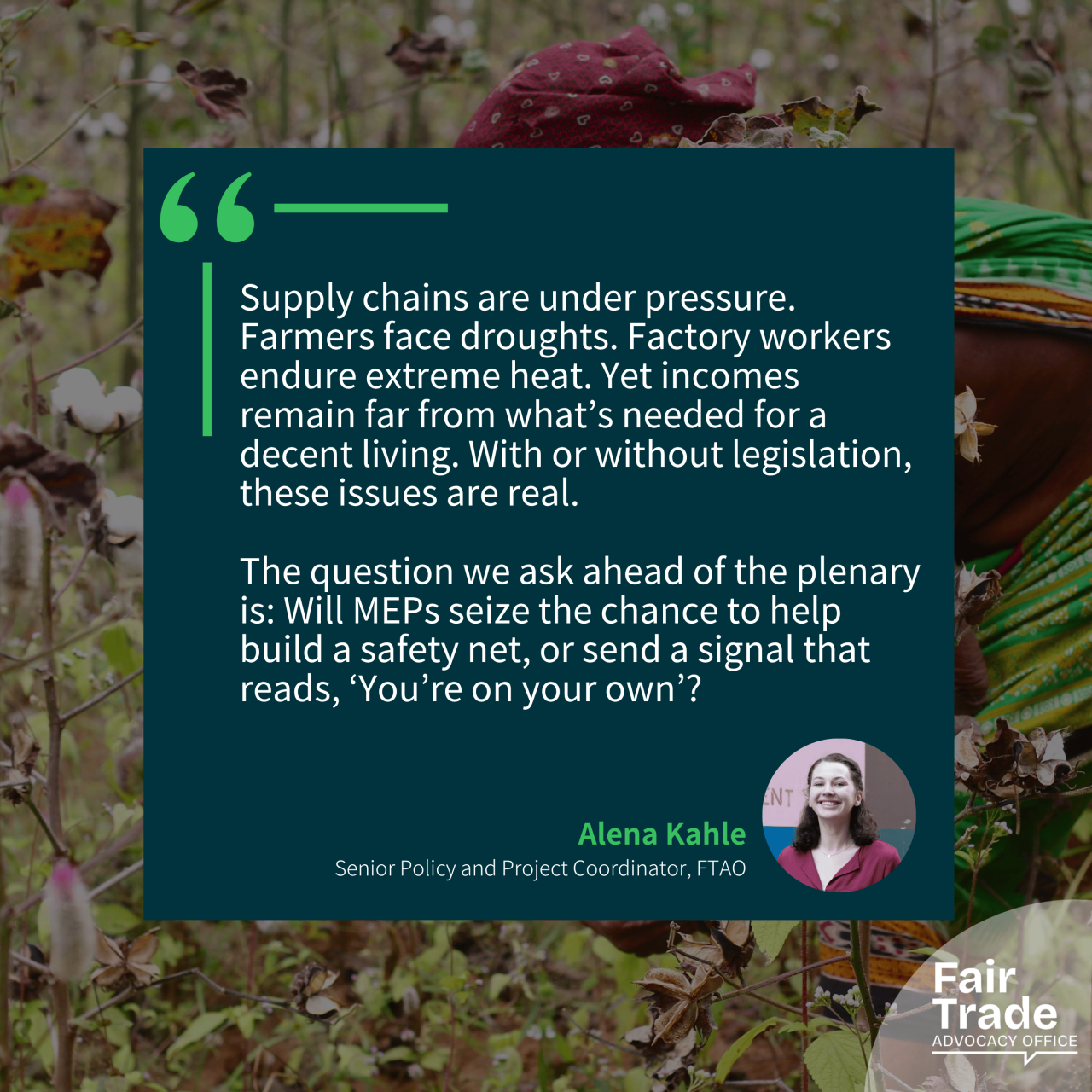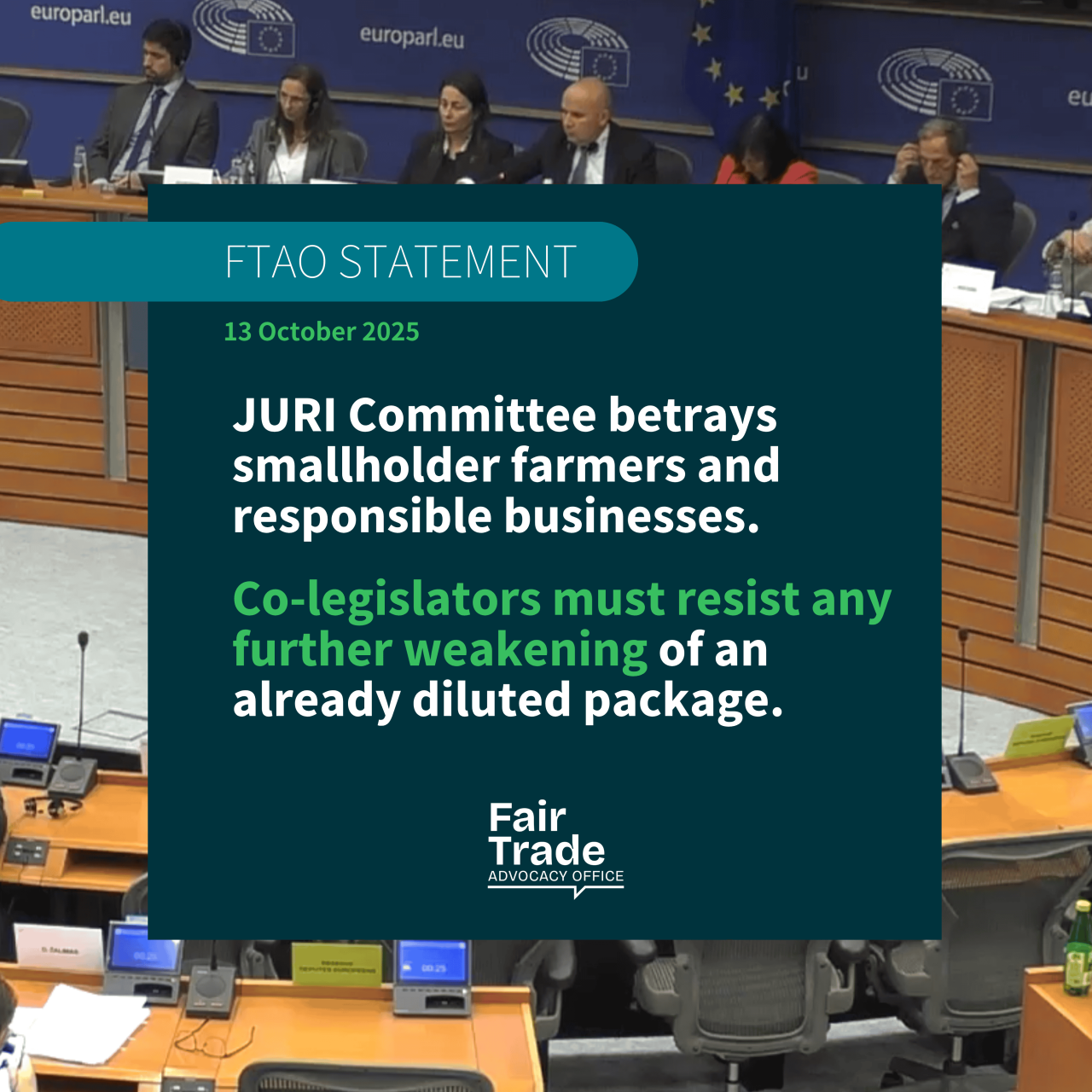Why Purchasing Practices Must Be a Part of Upcoming Due Diligence Legislation

This article is authored by the Fair Trade Advocacy Office (FTAO) and the Coordinadora Latinoamericana y del Caribe de Pequeños Productores y Trabajadores de Comercio Justo (CLAC) and was originally published in the Business & Human Rights Resource Centre’s November 2020 issue, Towards EU Mandatory Due Diligence Legislation: Perspectives from Business, Public Sector, Academia, and Civil Society.
The COVID-19 crisis has exposed once more the vulnerabilities in value chains and precarity of global business operations – and the weakness of voluntary corporate action in addressing these issues. The devastating consequences are felt most by millions of workers and communities around the world. However, there are signs this could change.
There has been growing momentum worldwide among governments, companies, investors and civil society, for mandatory human rights and environmental due diligence (HREDD). Crosssectoral regulation is already in place or under discussion in a number of European countries, including France, the Netherlands, Switzerland, Finland, Sweden and Germany, paving the way towards regional harmonisation.
Earlier this year, the European Commission committed to introducing such legislation within the European Union (EU), and has just launched a public online consultation on ‘sustainable corporate governance’, including mandatory HREDD. ‘Legislation on sustainable corporate governance’ is also part of the Commission's work progamme for 2021.
More From The Workstream

Trilogue deal on CSDDD is a step backwards for responsible business conduct

JOINT STATEMENT: Call for European Parliament to deliver a credible and ambitious approach on Omnibus I

Fair Trade Movement urges MEPs to seize the opportunity to strengthen CSDDD in upcoming plenary vote
